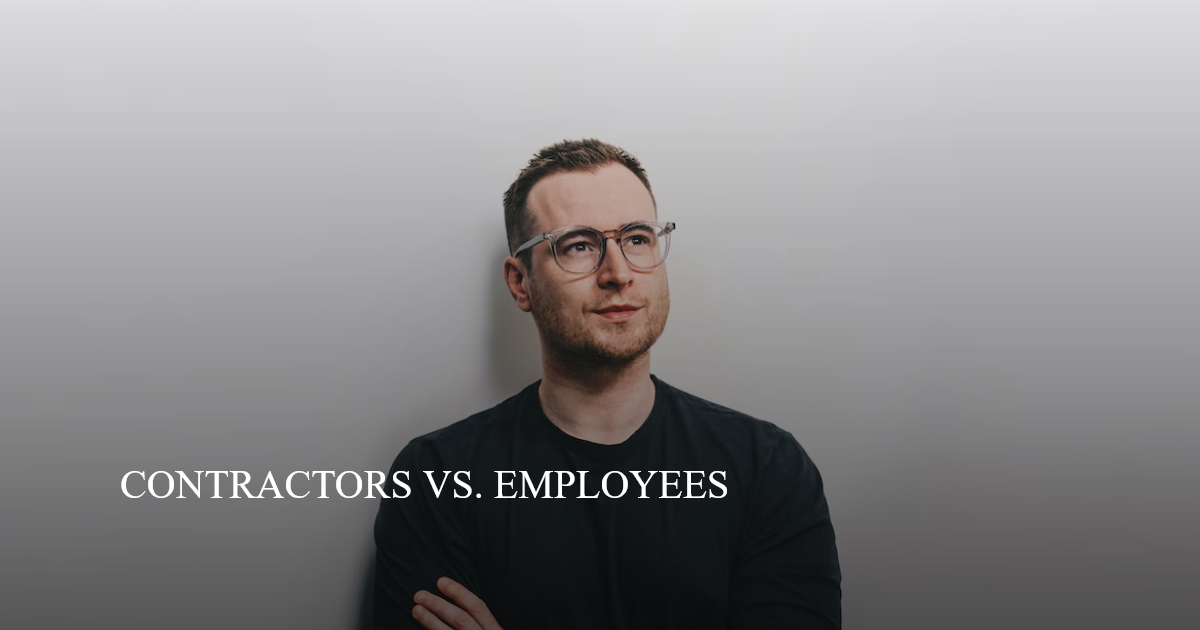At-will employment is the predominant system in the United States for employee-employer relationships. In short, at-will employment means that both the employee and employer can end the relationship at any time for any reason – save for illegal discrimination.
At-will employment is a controversial system with both defenders and detractors. The main aspect of it that is promoted is the idea of freedom. The employee has just as much right to leave whenever they wish as the employer does. The majority of such positions don’t have a noncompete agreement, either, meaning that you can go directly to another similar job.
Detractors argue that the relationship between an employer and employee is inherently unequal and that at-will employment gives the employer even further power. They argue that employees should only be able to be fired for cause and that other job losses should be compensated.
Key Takeaways:
-
At-will employment is the practice of allowing both the employer and the employee to end their employment relationship at any time.
-
At-will employment is the predominant employment system in the United States, with only Montana severely restricting it. However, it’s uncommon outside of the United States.
-
The practice is controversial, with both defenders and detractors.
-
Proponents say it gives both parties freedom and flexibility.
-
Opponents say that it heavily favors the employer, and, as the relationship is inherently unequal, further harms the employees.
-
Who Qualifies as an At-Will Employee?
The majority of job positions in the United States are at-will, with the exception of the state of Montana, which severely limits at-will employment. Employers will state in your employment contract whether or not your position is at-will and briefly describe what it means.
Exceptions to this rule are going to be workplaces that are unionized, government positions, and other positions that have a written contract that guarantees your position for a time. In these cases, employees are only allowed to be let go “for cause,” which means that you have to violate your employment contract.
Unions will even have a representative to assist employees that the company wishes to terminate. This person will act on your behalf to try to keep your job and possibly to prove that you didn’t violate the contract rules, if possible.
Advantages of Being an At-Will Employee
There are advantages to both the employer and employee to at-will employment. There are different rules in different states and different industries, but these largely apply across the board.
The employer has the advantage of:
-
Having flexibility. At-will employment allows employers to terminate employees or change their pay and benefits without warning or explanation. That means that they can act quickly to shift their talent pool or switch to a different insurer that offers different benefits.
-
Being protected from lawsuits. As long as the employer doesn’t flagrantly violate anti-discrimination laws, they can terminate or change an employee’s pay at will. That means that it’s very hard for an employee to prove malice in their conduct, or to fight back against pay or benefit cuts.
-
Act in the company’s best interest. Due to being unconstrained by contracts with employees, employers can freely do what’s best for the company without worrying about legal violations. This can include layoffs, mass alternation of benefits, or shifting people to other positions.
For employees, the advantages are:
-
Being able to leave without warning. Employees aren’t required to give a warning or a reason when they leave an at-will job. While many employers may ask, you aren’t obligated to give them any information at all.
-
The ability to jump directly into another job without delay. While there are exceptions to this, at-will employment doesn’t typically include a requirement to stay out of business for a certain amount of time or to avoid a certain type of business. This means you can continue in your field immediately after departure.
Disadvantages of Being an At-Will Employee
There are downsides to at-will employment for both employers and employees as well.
For the employer, the disadvantages are:
-
High turnover. This is especially true in low-skilled jobs, where employees aren’t invested in the experience they build. This can end up being expensive for the company, as they have to pay to train new people regularly and deal with customers’ complaints due to continually having inexperienced workers.
-
Low employee loyalty. As the employees are aware that they can be fired or have their pay cut at any time, they tend to remain suspicious of their employer. This means that they are unlikely to stay if a better offer comes along and are unlikely to put any more than the minimum of work in.
For the employee, the disadvantages are:
-
Lack of job security. At-will employment gives your employer the right to fire you for any reason at any time. While they can’t violate non-discrimination or whistleblower laws, it can be difficult to prove it even when they do, as they don’t need to list a reason for your termination.
-
No remuneration for being terminated. In the case of an employment contract or a union position, if an employee isn’t fired for cause, they are entitled to compensation. With at-will employment, you just stop getting paid as soon as your employment is over, even if you did nothing wrong.
-
Potentially getting their pay or benefits cut. Employers have the right to cut your pay or alter your benefits without reason or warning. This means that you can get a pay cut or lose benefits due to restructuring or the employer switching to a different insurance company – and just have to react to it.
At-Will Employee vs. Contracted Employee
At-will employees are hired on an at-will basis, meaning that they can leave at any time for any reason, but that their employer can also terminate their employment at any time for any reason. The idea behind it is to give freedom to both parties, but in practice, it’s somewhat more complicated.
The opposite of this would be contracted employment. Contracted employment not only requires that the employer be required to provide a reason to fire an employee, but it has to be one that fits with the contract. That means that a contracted employee must be fired “for cause.”
The main difference between the two is going to be in job security for the worker. If there’s a contract, it lays out expectations for their job as well as pay, benefits, and what actions would lead to a for-cause termination.
In at-will employment, the employee’s duties can be altered as the employer wishes, along with their pay and benefits. They also don’t need to be fired for cause.
At-Will Employee FAQ
-
What are examples of at-will employee positions?
The vast majority of positions in the United States are at-will, meaning it’s simpler to list those who aren’t at-will. Union positions aren’t at-will, such as teachers, and government positions aren’t at-will, either. A few other employers will also have an employment contract for certain positions, giving them additional protections.
-
What states don’t allow at-will employment?
None, as all states have some version of at-will employment. Montana, however, limits it to probationary periods, much like Europe does. There are numerous other exceptions as well, depending on your state, such as whistleblower rules, anti-discrimination laws, and implied contract exceptions.
-
Is at-will employment a good or bad thing?
At-will employment is very controversial, meaning that the jury is still out on whether it is good or bad. Proponents argue that it gives both employers and employees freedom and helps keep the United States competitive.
Opponents say that it heavily favors the employer as the relationship is inherently unequal. It allows them to change employment conditions without warning and fire people without giving them severance. This gives an employee no protection from a capricious or vindictive employer.





